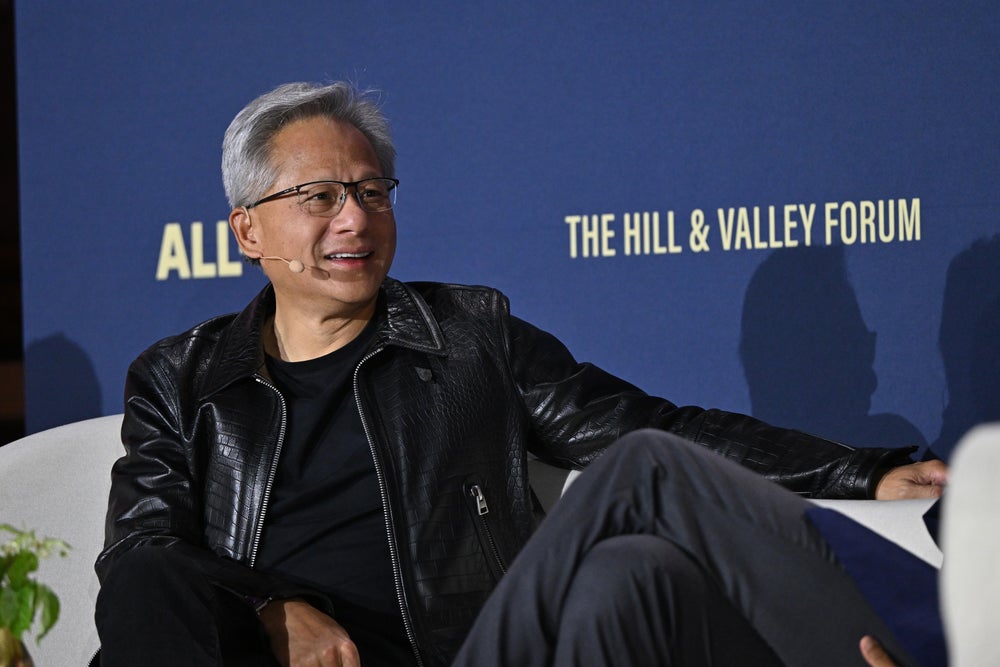AI Revolution: Emotional Impact & Millionaire Opportunities Ahead
AI Will Create More Millionaires in the Next 5 Years Than the Internet Did in 2 Decades, According to Nvidia's CEO
Nvidia CEO Jensen Huang stated that AI is transforming opportunities for income generation. In a recent podcast, he predicted that AI would create more millionaires in the next five years than the Internet did in its first two decades. Huang emphasized AI’s role as a significant equalizer in technology, enabling people to become programmers without needing to learn traditional coding languages like Python or C++.
Huang highlighted that "AI in my case is creating jobs," suggesting that the technology encourages creativity and innovation, allowing individuals to develop products others would wish to purchase. He noted the importance of natural language communication with AI, asserting that everyone can become either "an artist" or "a programmer" through AI technologies. However, Huang warned that individuals who do not utilize AI may face job losses to those who do.

Who Really Wins in the AI Revolution?
In a panel discussion hosted by the London Business School, experts debated the potential beneficiaries of the AI revolution. A live poll indicated that 56% of participants believed startups and innovators would gain the most from AI advancements. Nicos Savva, a professor at the school, noted that AI initially seems to benefit lower-ranking employees but later shifts advantages to more experienced workers, suggesting that AI complements human experience.
Vinous Ali of the Startup Coalition pointed out that the public sector could rapidly adopt AI technologies to enhance services. For instance, AI can assist healthcare professionals in transcribing patient conversations, thus allowing more effective communication during appointments. Gabriel Straub, a chief data officer at Ocado Technology, expressed optimism about AI's potential to enhance human roles in various sectors.

As discussions continue, the emphasis remains on identifying the genuine value AI brings and the necessary strategic approaches for implementation. The panel underscored the importance of asking the right questions about AI's role and its impact on tasks across various job categories.
The AI Revolution Won’t Happen Overnight
According to the Harvard Business Review, the anticipated transformation brought on by AI will not occur as quickly as some expect. Companies are misjudging the timeline for AI adoption and overestimating the immediate value it will generate. Many organizations still struggle to integrate AI effectively into their operations, risking wasted resources and declining trust.
The report highlights six fundamental misunderstandings companies have about AI, including the unrealistic expectations regarding its rapid impact and the tendency to focus too heavily on startups. The essential takeaway is that while AI holds immense potential, its integration into business processes will be gradual, often with more friction than anticipated.
As businesses navigate these challenges, AI tools that enhance productivity and streamline operations will be crucial. LogicBalls offers a range of AI writing assistants and tools tailored for small business owners, marketers, educators, and content creators. By leveraging innovative products like DecisionHelper, Creative Helper, and various writing and marketing tools, businesses can harness AI’s potential more effectively.
The Consumer AI Revolution Won’t Be Technical. It’ll Be Emotional.
Emerging trends in consumer AI suggest that the most significant changes will not be in technical capabilities but in emotional connections. The rapid advancements in AI have transformed user interactions, moving from technical features to emotional resonance and user experience.
As token costs decrease and model fine-tuning becomes more accessible, the focus is shifting toward creating intuitive, culturally relevant AI tools. These tools aim to integrate seamlessly into users' daily lives, emphasizing user trust and ease of use over sheer technical performance.
The future of consumer AI lies in developing tools that anticipate user needs and provide personalized experiences. This shift marks a transition from traditional software interfaces to more ambient, behavior-shaping technologies.
In the next 18-24 months, many consumer AI projects may face failures, but those that successfully blend cultural insight with technical capabilities will stand out. The goal is to create AI products that are not only functional but also trustworthy and unobtrusive.
LogicBalls is committed to providing innovative AI solutions that enhance content creation and user interactions. The company's tools, such as the Email Response Generator and the Client Success Story Generator, can help businesses navigate this evolving landscape effectively.
Explore how LogicBalls can assist your business in harnessing the power of AI by visiting https://logicballs.com/.


